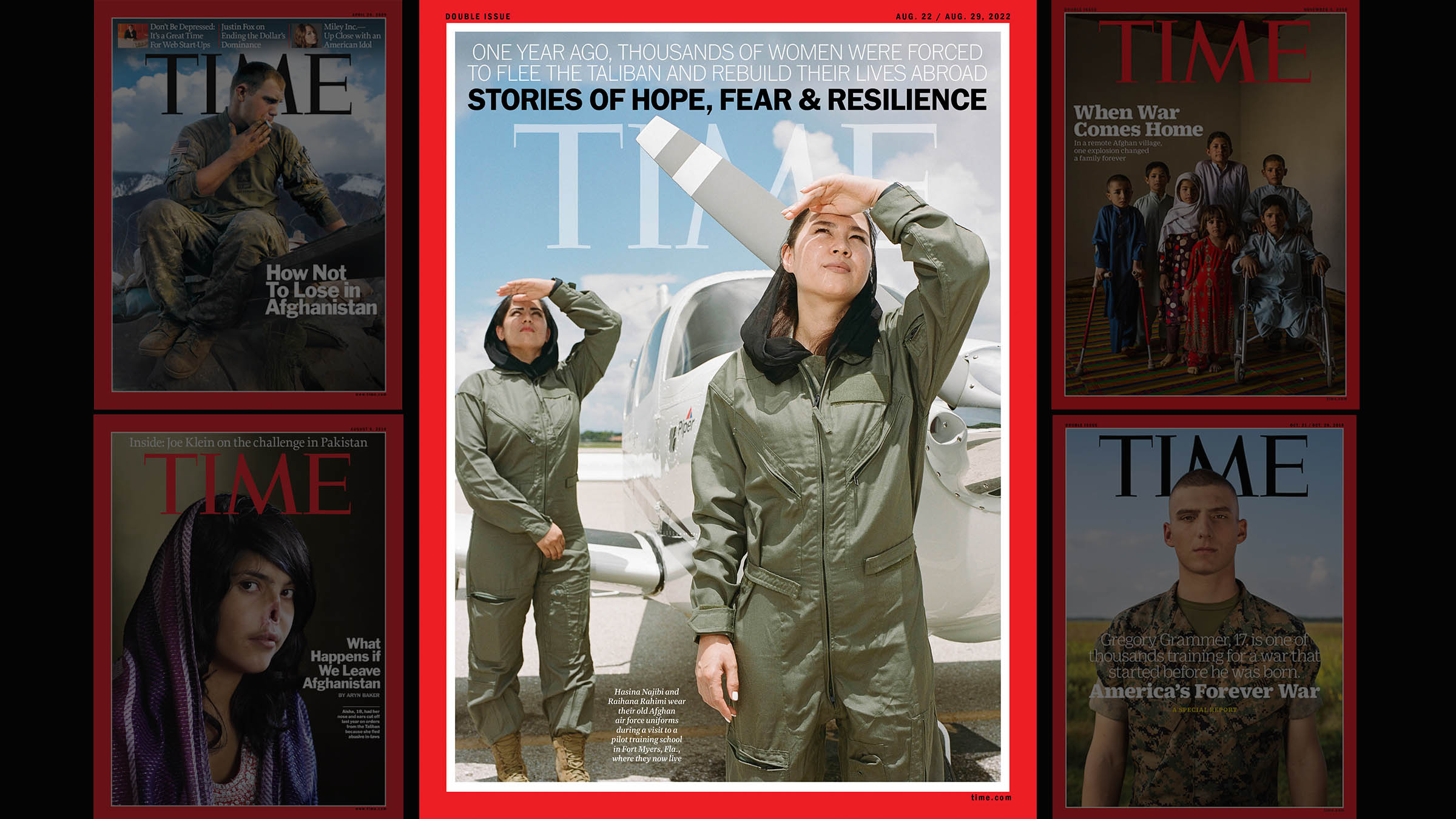
Over the course of “the Longest War”—a name we were already using back in 2009—TIME published more than a dozen covers about Afghanistan and the Taliban. Perhaps the best known was in 2010 and featured a shocking and disturbing portrait of Bibi Aisha, a then 18-year-old whose husband—a Taliban fighter—had cut off her nose and ears after she tried to escape their forced marriage. The story that ran with that cover, written by senior correspondent Aryn Baker, explored what might happen to Afghan women if the U.S. were to pull out of Afghanistan.
Today of course that is no longer a hypothetical. To mark one year since Kabul fell to the Taliban—a year in which women have lost many of the freedoms they had for the previous two decades—executive editor Naina Bajekal collaborated with journalists Amie Ferris-Rotman and Zahra Joya on a special project. The powerful visuals in the package were overseen by TIME’s Sangsuk Sylvia Kang, Paul Moakley, and Katherine Pomerantz. Working with women writers and photographers around the world, and supported by a grant from the Pulitzer Center, the team set out to illuminate the experiences of women who had to leave Afghanistan, pursuing new dreams even as they remain deeply concerned about loved ones back home.
The result is our international cover for this issue. It tells the stories of eight Afghan women, each of whom since last August has fled the Taliban to start a new life in locations ranging from Fort Myers, Fla., to Nice, France, to São Paulo. For Ferris–Rotman and Joya, this project was particularly personal. Ferris-Rotman was previously based in Afghanistan, where she established an organization to mentor and train Afghan women journalists. Joya, one of TIME’s 2022 Women of the Year, became one of the many new Afghan refugees last August. From her home in London, she runs Rukhshana Media, which is dedicated to telling the stories of Afghan women. Rukhshana Media will be publishing this project on its own website, in English and Dari, where we hope many of its readers will see themselves reflected in the stories.
Read More: What Afghanistan’s Women Stand to Lose
The journeys of these eight women are varied. Some are stories of hope. Some of fear. All are stories of resilience. “What we need is not pity and empathy,” says Masouma Tajik, a 23-year-old Rutgers University student who left Kabul for Kyiv, only to have to rebuild her life once more. “What we need is opportunities so we can make our own way.”
Former Afghan air force pilot Raihana Rahimi, who appears with Hasina Najibi on the cover and was interviewed by Afghan journalist Farahnaz Forotan, expresses a similar sentiment. “I am determined to find a way back into my profession,” she says. “This is the dream that keeps me alive.”
More Must-Reads from TIME
- Cybersecurity Experts Are Sounding the Alarm on DOGE
- Meet the 2025 Women of the Year
- The Harsh Truth About Disability Inclusion
- Why Do More Young Adults Have Cancer?
- Colman Domingo Leads With Radical Love
- How to Get Better at Doing Things Alone
- Michelle Zauner Stares Down the Darkness
Contact us at letters@time.com